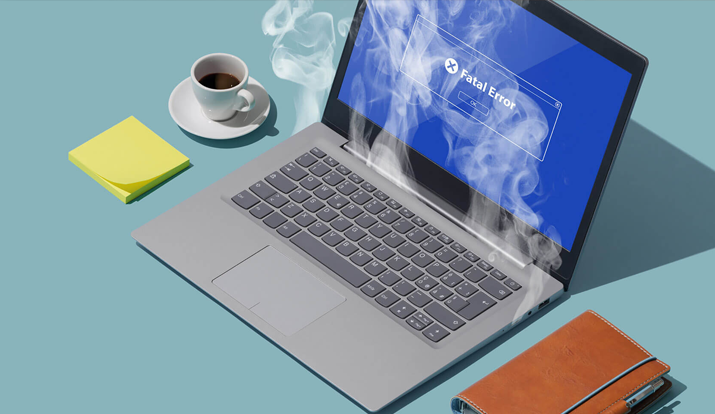

Like all electronic machins, computers also have the tendency of heating up every now and often, which is a great nuisance for users because of loss of productivity and time.
If your PC’s are also experiencing slow workings, blue screen, failed software, system freezing, whirring noises and shut down problems, it may be because the systems have become overheated. You need to consider the problems and solve it as soon as possible.
Why Does A Computer Overheats
There are times when our computer suddenly freezes or shuts down while you we are in the process of using it such as doing important tasks or playing computer games. There are also times when we suddenly feel our PC’s temperature rising up. So, what exactly is the problem?
Let us first come to the terms that the problem of PC overheating is common and which usually happens when there is excessive amount of heat coming from its components. When this happens, we might feel a bit panicky, and we should rightfully so, particularly because overheating can cause further hardware damage applications to shut down, various errors, system slow doen/crashes and in more severe cases it may also cause the computer to disintegrate-which is such a tragic event to occur because mostly everything that people are operating is through our computer.
If your PC is experiencing overheating problems, do not worry. Listed below are some tips that you can use to help you prevent your computer from overheating problems.
Steps To Fix Overheating Computer Issues
1. The Manual Check- First and foremost, figure out where the heat is coming from. When air is not properly flowing through fans, heat transfers to your systems, making it overheat. So check the air vents and see if they are blowing out some air, or if they are just stagnant.
2. Checking Hardwares- Now check if the other hardware are properly working or not. Sometimes, when a PC overheats, it is because graphic cards, or other parts of the CPU were unplugged or failed to do their job. Check the CPU's manuals or configuration settings to see how much heat the system can handle, if you’re not able to comprehend the settings, then contact the PC expert.
3. Check PC’s for Proper Ventilation- Never put up your PC’s against a wall, near a heating vent, or a radiator because these things will prevent the fans from cooling the system down.
4. Don't run too many background applications. Sometimes, the problem occurs when we are running applications, and consuming system’s energy. Find out which application is causing trouble. Use task manager to check how much data each application is eating up, check for the amount of CPU usage, and how fast the processes load. If they take too much time, it means more work for your PC, which of course will cause it to heat up. Free up some space.
5. Cleaning Is Important- Get rid of outside particles of dust. From the computer cases, CPU units to various hardware, dust accumulates and causes the PC to overheat. So it is always best that you make sure that your PC and it’s related components are clean all the time. Clean them thoroughly to prevent build-up, and ensure to unscrew the doors of the fans so you can properly them.
Do not use any sort of liquids for cleaning as it can cause damage due to corrosion.
Lastly, If nothing works, check the specifications of your PC. If the detected heat levels comes as of still high then you have to check for damage/faulty components inside. Look out for cracks in the vents/heat sink or damage to connector pins or power cables.
Good thing is replacing damaged fans won't cost too much and is easily can done by a computer repairing shop if you are not comfortable doing this by yourself.
A software friendly option is here! That will get rid of your junks and the applications that run in the background and causes the PC to overheat. You can use IGS Cleaner which is a 360 degree PC Cleaning Software who manages to decrease the amount of overheating by quickly cleaning apps and weeding out junks residing inside our PC.